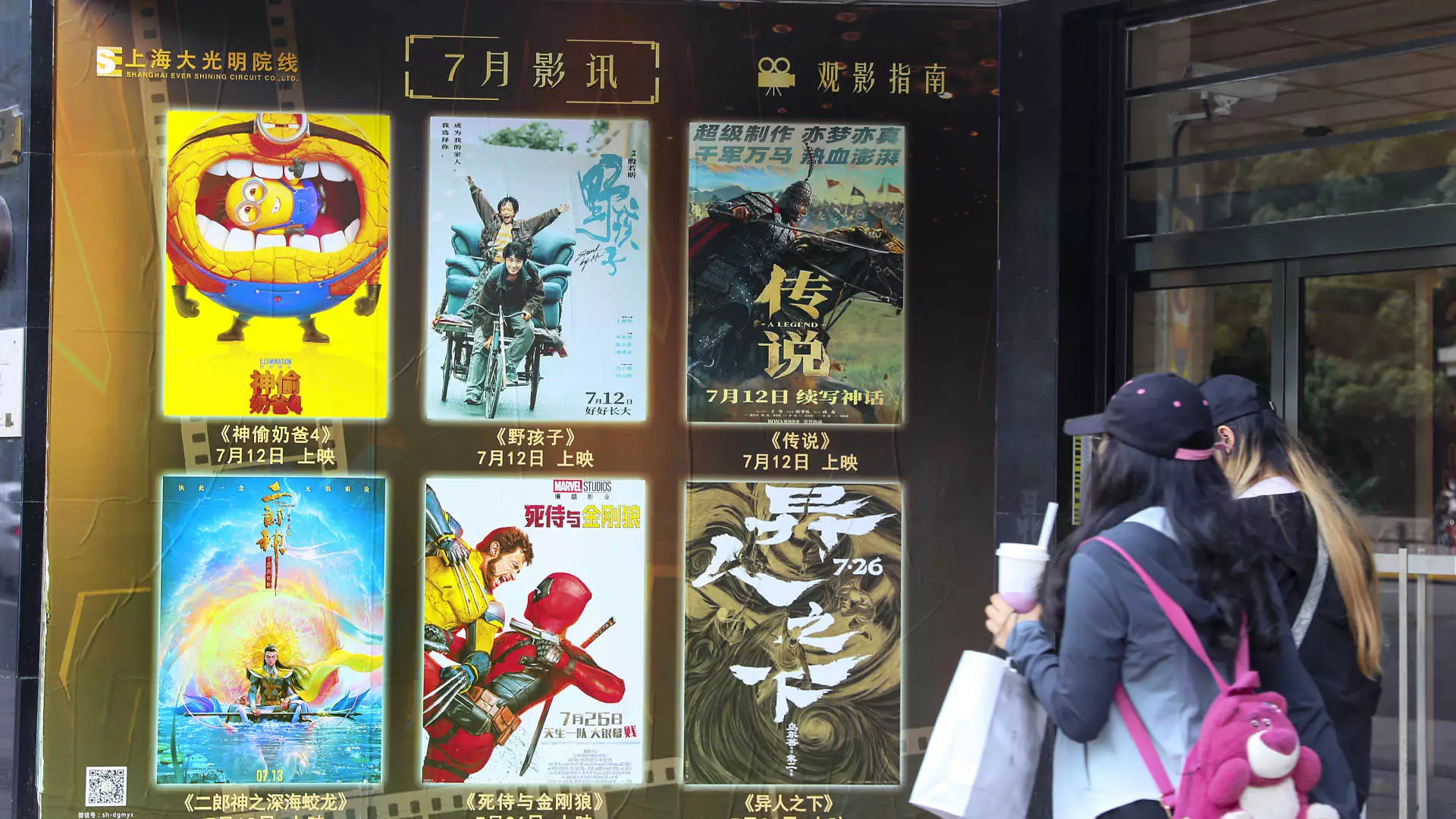In an unforeseen twist, President Donald Trump’s trade war has reached the glitzy shores of Hollywood, dragging the once-thriving film industry into troubling waters. The recent hike in tariffs on Chinese imports has prompted a series of retaliatory actions from the Chinese government, including a dire restriction on the number of American films that can take the stage in their box offices. This aggressive maneuver isn’t just a random political fallout; it signifies a seismic shift in the complex and mutually beneficial relationship between America’s film industry and China. The immediate financial shakeup was undeniable, with shares of industry heavyweights like Disney and Warner Bros. Discovery taking a nosedive in response to ongoing volatility.
From Treasure Trove to Tumbleweed
For years, the Chinese market served as a goldmine for U.S. studios, a sanctuary where the predictability of massive profits reigned supreme. Films were crafted with an international audience in mind, designed to appeal not just to American viewers but to the burgeoning Chinese demographic eager for entertainment. However, as local productions gained strength and sophistication, the tide began to turn. Once touted as the land of lucrative potential, the Chinese box office has become increasingly inhospitable to Hollywood films, leading to a disheartening tendency for American studios to overlook projected revenue from this once-promising market. Ann Sarnoff, the former CEO of Warner Bros., captured this sentiment succinctly when she remarked how “the Chinese market has become very challenging for U.S. studios.”
The Market Shift: Local Favorites vs. American Blockbusters
This shift in audience preference is a palpable wake-up call for Hollywood. The once glittering allure of the Chinese box office now feels more like a siren’s song as local films take center stage. Audiences are increasingly prioritizing home-grown Chinese fare, marking a cultural reclamation that poses a tangible threat to American dominance in cinematic storytelling. This isn’t just about box office numbers; it’s about a cultural exchange that appears to be dwindling. The expiration of the U.S.-China Film Agreement in 2017 exacerbated these tensions, as it effectively dismantled the guaranteed pipelines that allowed for more American films to break into the market. Professor Aynne Kokas aptly points out that while other industries were prioritized in the trade negotiations, films were essentially left out in the cold, allowing China’s film industry to flourish in the absence of strong competition.
Blockbusters in Decline: The Numbers Speak
For evidence, look no further than the numbers. In 2019, nine Hollywood films crossed the $100 million mark at the Chinese box office—a number that has dwindled alarmingly in recent years. In fact, over the past five years, only a scant eight American films have managed to crest the $100 million threshold, and only one has surpassed $200 million. In contrast, the rise of domestic films has been nothing short of explosive. The staggering success of the Chinese animated feature “Ne Zha 2,” which has become the first film ever to reach $1 billion at the box office within a single market, sends a clear signal: Hollywood needs to reassess its position in a landscape it once dominated.
The Economic Ripple Effects
While diminishing ticket sales are visibly troubling, the broader economic implications for Hollywood are even more daunting. Industry insiders have flagged the weakening of the currency as a major hurdle; when the dollar is less potent, international box office returns become deceptively appealing. However, this is a double-edged sword—the cost of doing business simultaneously escalates due to tariffs and other economic pressures. With stock market instability already having Hollywood on its toes, the long-term implications of this trade war have left many executives scrambling, unsure of how the chess pieces will ultimately fall.
Hollywood is at a crossroads, grappling with the gravitational pull of evolving international markets and the ramifications of a trade war that threatens to redefine its status as a cinematic empire. Rather than solely focusing on vengeance or blame, a more constructive dialogue should emerge, one that recognizes the nuances of cultural exchange and the need for adaptation in an ever-changing global landscape.

